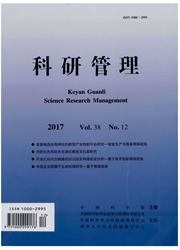

 中文摘要:
中文摘要:
国际合资公司(international joint venture,简称为IJV)的创新能力对IJV构建和保持竞争优势越来越重要,东道国母公司在相对于外方母公司处于弱势的情况下,探寻其对设立在东道国的IJV的管理控制方式,是否以及如何提升IJV创新绩效,具有重要的理论价值和实践意义。本文从处于相对弱势的东道国母公司的视角,探讨东道国母公司对IJV的正式和非正式控制是否以及如何影响IJV的技术创新,并以华南地区的96家IJV为样本,运用结构方程进行了实证研究。结果表明东道国母公司的正式和非正式控制以不同的途径正向作用于IJV的技术创新,研究结果对IJV的控制理论、技术创新理论及其实践都有较重要的学术贡献。
 英文摘要:
英文摘要:
The innovation capability is becoming more and more important for International Joint Venture (IJV) to build and maintain a competitive advantage. Host parent firms,which are in a vulnerable situation of technology and management in relation to the foreign parent company,must seek effective management ways to control over IJV in order enhance the learning and performance of IJV. This issue is urgent to solve both in theory and in practice,and is in the forefront of related research area. The impact of mechanisms for the formal and informal control by the host parent company on IJV technical innovation is discussed with 96 samples of IJV in South China. The results show that social control by the host parent company contributes to IJV internal knowledge integration and management innovation positively; knowledge integration played a role of intermediary in this process. It is proved that there exist mutual positive relations between formal and informal control of host parent companies,and formal control of host parent firms has a direct positive effect on IJV' technical innovation.
 同期刊论文项目
同期刊论文项目
 同项目期刊论文
同项目期刊论文
 The Relationship between Post-acquisition Organizational Structure and Acquisition Performance Moder
The Relationship between Post-acquisition Organizational Structure and Acquisition Performance Moder An Empirical Research on the Moderating Effect of Legitimacy on the Relationship between Top Managem
An Empirical Research on the Moderating Effect of Legitimacy on the Relationship between Top Managem 期刊信息
期刊信息
